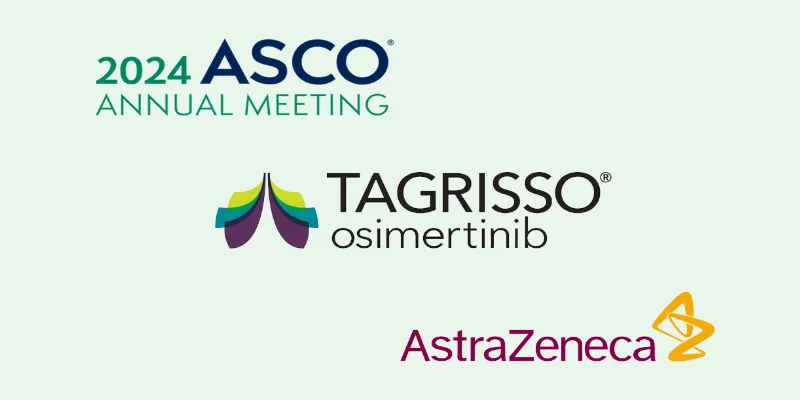Tagrisso Extends Survival in Stage III EGFR-Mutated Lung Cancer Treatment

2 June 2024
AstraZeneca announced that its drug Tagrisso (osimertinib) has significantly improved outcomes for patients with unresectable, Stage III EGFR-mutated non-small cell lung cancer in the LAURA Phase III trial. Results presented at the ASCO 2024 meeting showed that Tagrisso reduced the risk of disease progression or death by 84% compared to placebo, offering a potential new standard of care.
A New Standard in Lung Cancer Care
Tagrisso, already approved in multiple countries for various stages of lung cancer, has now become the first and only epidermal growth factor receptor (EGFR) inhibitor to show a significant benefit in the Stage III setting.
The results, which were presented at the 2024 American Society of Clinical Oncology Annual Meeting and simultaneously published in The New England Journal of Medicine, reveal that Tagrisso reduced the risk of disease progression or death by 84% compared to placebo. Impressively, the median progression-free survival extended to 39.1 months for those treated with Tagrisso, versus just 5.6 months for those receiving a placebo.
According to Dr. Suresh Ramalingam, the principal investigator of the trial, “The impressive progression-free survival results from the LAURA Phase III trial represent a major breakthrough for patients with Stage III EGFR-mutated lung cancer for whom no targeted treatments are available. Osimertinib delayed the risk of disease progression or death by an unprecedented 84% and should become the new standard of care for patients in this setting based on these data.”
Impact on Global Treatment Protocols
The international phase 3 LAURA trial enrolled 216 patients across more than 15 countries, indicating the global relevance and potential impact of this treatment. Osimertinib's success in the trial could redefine standard care practices worldwide, offering hope to thousands who might not have benefited from the current standard of care immunotherapies like Durvalumab, which are generally ineffective for patients with EGFR mutations.
Susan Galbraith, Executive Vice President of Oncology R&D at AstraZeneca, highlighted the significant advances and stated, “Tagrisso extended progression-free survival by more than three years in this potentially curative setting, reinforcing the need to test and diagnose patients early. These practice-changing data cement the powerful impact Tagrisso can make as backbone therapy in EGFR-mutated lung cancer, especially in the lives of these patients who have historically experienced early progression following chemoradiotherapy.”
Detailed Findings and Future Implications
The trial's robust findings include significant improvements in progression-free survival across all analyzed subgroups, including sex, race, type of EGFR mutation, and age. Notably, the trial also highlighted a lower incidence of brain metastases in the osimertinib group compared to placebo. Furthermore, researchers are closely monitoring the long-term impacts on brain metastases and other outcomes, with ongoing studies such as the NeoADAURA and ADAURA2 trials exploring the use of osimertin, even in earlier stages of lung cancer.











Comments
No Comments Yet!